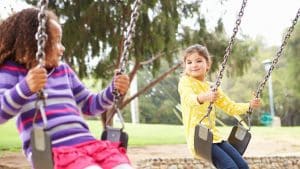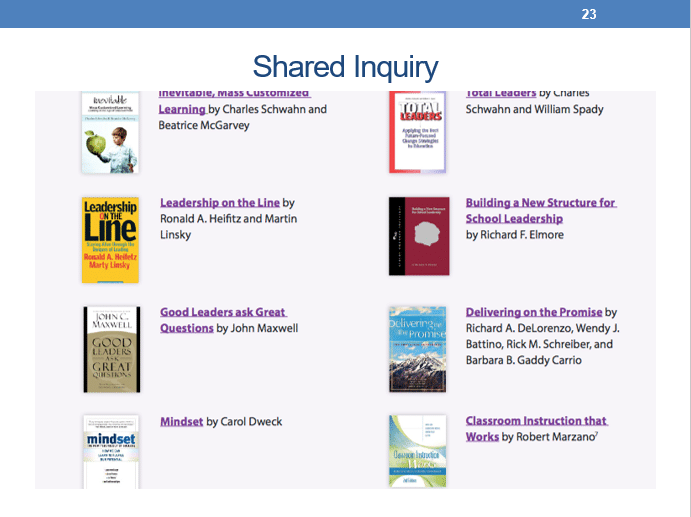Mental Health and Wellness Are Key to Learning
Education Domain Blog
The following is part 2 of an excerpt and transcript of the Aurora Institute 2019 Symposium opening keynote address, delivered on October 28th by Chan Zuckerberg Director of Whole Child Development Dr. Brooke Stafford-Brizard. In the address, titled Broadening the Definition of Student Success: A Spotlight on Mental Health, she dives deeply into what it could look like to integrate mental health, as one pillar of whole-child development, into schools. In part 1, she offered examples of how a school couldBrooke Stafford-Brizard create space for the personal growth, connection, and trust that drive academic development. Here in part 2, Dr. Stafford-Brizard presents evidence from multiple branches of science about the connections between mental health, well-being, and learning in students and adults.
When we asked parents and teachers the most important skill set that their students need in life, parents named mental health as the most important, followed by reading. Mental health was in teachers’ top five.
The majority of both parents and teachers feel that teachers should and can focus on this broader definition of success in the classroom. We’re also hearing this directly from students. The Pew Research Center did a survey and found that 96% of adolescents, almost all of them, named depression and anxiety as a problem amongst their peers. Seventy percent of them named it as a major problem. We know these emotions are at play in our schools. Mark Brackett and the team at the Center for Emotional Intelligence at Yale interviewed thousands of high school students, and these were the main emotions that they expressed feeling.
We do see happy there. But we also see stressed, bored, tired, and anxious as prevailing emotions that our students are feeling. It’s similar for our educators.
They’re feeling frustrated, overwhelmed, stressed as some of those core emotions. So we know the need is clear, and the demand is clear. But we can’t get to solutions without turning back to that asset-based lens and thinking about how do we actually address this.
So I want to move into how we define mental health through that asset-based lens. We anchor on a number of frameworks that drive the way that we partner and invest in the field. The first is one from the team at the University of Wisconsin-Madison at the Center for Healthy Minds. They’re led by Dr. Richard Davidson, who’s a neuroscientist who studies well-being. He’s named these four key areas as critical to well-being in students and adults.
The first is awareness. How are we aware of ourselves and finding the ability to be present in the moment, like you’re doing right now? Distractions left and right, but you’re focusing in on the signal up here in the talk that I’m giving.
Connection. Those relationships with others driven by empathy, compassion, gratitude that are critical for our healthy development.
Insight is that deep knowledge of ourselves, what makes us tick, what might trigger us. In particular, it’s really understanding that we’re constantly evolving.
And then purpose: having that really intentional focus on how you can contribute to the world in a way that’s meaningful to you and of consequence beyond you. So these are four very broad key areas of what it means to be healthy and grounded in well-being. But again, they’re very broad, and we can’t just snap our fingers and make this happen for our students. So we ground in another framework, in addition with a number of our partners, called the Building Blocks for Learning.
This is a framework that I developed in partnership with the Turnaround for Children team, and we’ll talk more about this with [Pamela Cantor, M.D.] in a bit. It’s a developmental framework that draws from developmental psychology, cognitive neuroscience, social psychology, to present a developmental trajectory toward higher-order, not academic skills. It’s grounded in that critical cornerstone of healthy adult attachment and then suggest the skills that ladder up to higher-order skills like resilience and self-direction.
There are a lot of frameworks out there, and we’re all anchoring on different definitions of “whole-child.” But there’s also a lot of commonality. We see the focus on what we typically define as social-emotional skills here — those inter- and intra-personal skills that drive relationships and learning. We see the work of the scholars that focus on mindset with things like growth mindset and sense of belonging. We also see some of the core constructs that are driven in a trauma-informed environment.
Let’s focus on resilience really briefly because I want to drive a key point home here. If we think about resilience as being a set of skills that help us to persevere through challenging times and actually protect us against some adversity, the skills under resilience in this framework are proven in the research to drive it.
But it’s not an individual skill set. Not only do we focus on these individual skills, but the context around us is critical for resilience as well. So community, relationships, and culture drive the skill, and frankly, drive all of these skills. It’s what we’ve learned from the multiple sciences of human development and learning connected to these constructs.
In terms of those sciences, we could spend the rest of this time and frankly the rest of this week, naming the evidence that shows that mental health and wellness as we’re defining it is key to learning. We’ve partnered with multiple organizations to synthesize and codify the science, and it helps us understand that it matters from birth to early adulthood. The knowledge that relationships and connection actually build our brain, starting in infancy to the fact that sense of purpose is a core driver of perseverance and completion of college.
But mental health and well-being are absolutely critical for the engagement in learning and the process of learning. Our evolutionary success as humans is due to our emotions and our ability to socially connect. Because of that, those functions are intertwined with the cognitive processes that drive learning, attention, memory, decision-making, motivation. We cannot tease these things apart, and they matter not just in the moments of learning, but in the way that we apply those learnings in the world outside, which is a social structure, and emotions matter there.
 Before I move on from the why to the how, I want to share one study. Researchers put four-year-olds on swings. They swung some in sync, and they swung some of them out of sync. Then the students were brought back into the classroom to complete a task. The students who were swung in sync were better listeners with each other. They were better collaborators, and they were more effective at completing the task.
Before I move on from the why to the how, I want to share one study. Researchers put four-year-olds on swings. They swung some in sync, and they swung some of them out of sync. Then the students were brought back into the classroom to complete a task. The students who were swung in sync were better listeners with each other. They were better collaborators, and they were more effective at completing the task.
Now I’m not sharing this because I expect you to go back and swing all of your kids in sync on swing sets. The message is more about intentionality. We don’t leave learning algebra or learning persuasive writing up to chance. We don’t count on a poster or morning meeting to deliver those skills. We design. We plan. We’re intentional. We ground that in learning science, and the skills that drive mental health and well-being are no different. That intentionality is absolutely critical.
It’s also absolutely critical when we think about equity. We’re focused on this deeply. It’s not just that we have to understand that we see toxic stress or chronic stress impacting the learning centers of the brain that are responsible for attention and memory. How do we impact students’ mental health in an inequitable learning environment? What are we doing to their insight and their awareness when we don’t recognize their cultures and ensure that those cultures are represented in their school? How do we impact their belonging when we don’t attend to explicit and implicit bias that exists in a lot of our schools? We need to invest in the science to learn more about answers to these questions. We also have to ground a lot of our answers in the space of practice and getting from that why to the how.
So I want to bring us there.
Dr. Brooke Stafford-Brizard is Director of Whole Child Development at the Chan Zuckerberg Initiative. Continue to watch this space for more from her 2019 Aurora Institute Symposium keynote address. See more highlights from the entire conference on this page.




